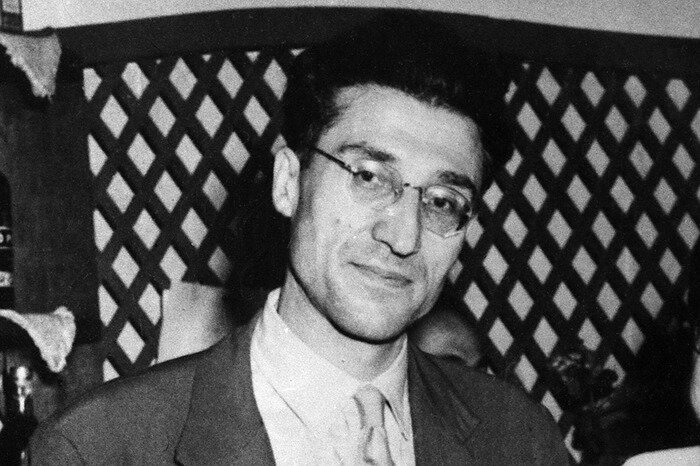
While I was exploring the Langhe region, on sunny morning of autumn, I came across the house of one of the most important Italian writer.
It’s very nice to discover that this wonderful region is not only famous for its wine, or its hazelnuts but also for its culture. This is what actually led us to Santo Stefano Belbo, where, Cesare Pavese a noteworthy author was born.
To welcome us, the friendly Professor Gatti, President of Cepam (Center Pavesiano Museum). In addition to managing the native house and the numerous tours during the year, he also organizes the Cesare Pavese’s award, with subsidies from the Piemonte Region and with the partnership of the District of Santo Stefano Belbo. Several food and wine local producers also support this cultural initiative: agritourism (farm holiday), wine bars, bakeries, restaurants, « trattoria », taverns and local producers from Santo Stefano Belbo and neighboring villages.
As you start the visit of the author’s house, let yourself be transported by the pleasant atmosphere it provides. The house features a stair case in front of the main door, and on your left the big kitchen where the family used to spend a lot of time by the fireplace. The Cepam has turned all the rooms of the house into a museum, except the bedroom where Pavese was born, it was left in its original state, with all the family souvenirs.
A display cabinet in which all of Pavese’s books written in other languages are presented, it also a must see. This house/museum is definitely a visit not to miss in the Langhe. And if you own any of Pavese’s books in a language other than Italian, you should donate them to the foundation.
Regional and European subsidies have allowed the renovation of parts of the house and transform it into a small auditorium where, every year the Cesare Pavese literary award takes place.
The very experienced Professor Gatti, will allow you to discover Pavese’s universe: a world which a deep sense of contradiction between literature and political commitment, between an individual existence and common history have co-existed, along with an anguished analysis of himself, his relations with others and his continuous struggle to build himself as a man and author.
He was born in Santo Stefano Belbo in 1908 and died in 19520 in Torino.
The death of his father when he was only 6 years old, shocked him, he was brought up by his authoritarian mother, and developed a very strong relationship with his sister Maria.
He graduated in Torino, in literature with a thesis on W.Whitman. Disciple of Augusto Monti, friend of L.Ginzburg and others antifascists intellectuals from the 1920’s ha read numerous American authors and began to translate English and American authors. Years after, he undertook the translation of books from Defoe, Dickens, Joyce.
Between 1935 and 1936, he was arrested and put in jail because of his relationship with militants of the Law and Freedom Group, and because of letters he was hiding to help his girlfriend. He was sent to Brancaleone Calabro where he was inspired to write important books such as « The Prison ». Later in 1936, the woman because of whom he was sent in exile left him.
What struck me the most when visiting the house, was not only the kindness and the greatness of the author but also his tormented personality. In fact, his life was dominated by a deep sense of loneliness and emptiness, nourished by numerous sentimental disappointments.
In 1942 he was hired by the publishing company Einaudi: after a stay in Roma, and during the German occupation, he sought refuge in the village of Montferrato, in sister’s house, from where he observed the Underground actions with bitterness.
After the liberation, he became a member of the communist party and began to work for the daily newspaper « l’Unità ». Years of intense work followed during which he wrote many of his best books.
In spite of the Strega award he received for the book « The beautiful summer » in 1950, the agony which distinguished him, brought him to this death, when on the 27th August, the same year, he was found dead after taking an excessive dose of sleeping pills.
http://www.centropavesiano-cepam.it/